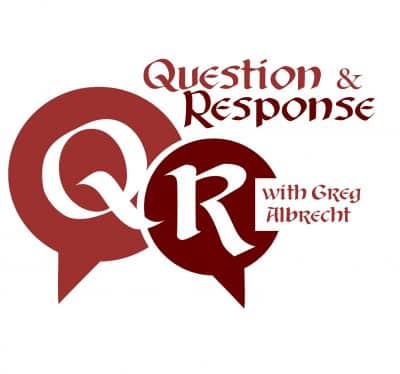Money Can’t Buy Me Love – Stephen Crosby

The words of the prophets are written on the subway walls . . . So wrote Simon and Garfunkel in their 1966 hit song, The Sound of Silence. If we pay close attention, we will find that the secular artists (poets, musicians, authors, etc.) of a culture often speak kingdom values and insights to the people of God with a clarity not found among the people of God.
A Boy and the Beatles
I grew up in the sixties listening to the Beatles. In terms of teen-idols, I wanted to be them. Like so many at the time, I picked up the guitar and played in various bands for many years. Lennon and McCartney wrote a tune that went to #1 called: Can’t Buy Me Love. The refrain said: “Money can’t buy me love.” Now, that did not stop them from gladly raking in multiple millions! But the line still expresses a kingdom-of-Jesus value. As the fabricated image presented to me by good marketing lost its hold on me, I learned of their true back-stories. John Lennon’s was particularly painful. It shaped his persona and music. I have lived long enough to be eternally grateful that I wasn’t them. Because money can’t buy me love.
A few years ago, I saw an interview with a man who was the Lennons’ private photographer after the Beatles broke up. Post-break-up, John retreated to a happy life of being nothing other than a house-dad. The photographer relates an account of how John would carry around a Polaroid instant camera with him for hours a day. (Yes, it was the seventies.) He would take endless pictures of Yoko and their baby son, Sean. He would spread the pictures out on a table, covering the entire table top. He would stand there, staring at them, and mutter to himself over and over: “I have a family, I have a family.” This is poignantly insightful about John’s painful past. But it also hit me like the proverbial ton of bricks: “John would sell everything he had, to have what I have enjoyed freely for forty-five years: a family who loves me. I broke down and wept with thankfulness. Money can’t buy me love.
Not Every “Happy Family” is a Happy Family
I saw a recent interview with Donnie Osmond of the Osmond Brothers fame. He tells the story of how he had a best friend when he was approximately five years old. In his middle-aged adulthood, he could still recall the day and moment of his father coming and taking him away from his friend to rehearse with his brothers. He related how much it hurt and how he wished he could have just had a friend. The interviewer asked him a great question: “After all the fame and money you have as a result of all that rehearsing, how do you feel about your father’s decision?’ His response stunned me: “I would trade it all in, right now, for that friendship.” The drop-dead sincerity in Donnie’s tear-filled statement was not hyperbole. It could be felt and it broke my heart. I wept for him, and again with thankfulness for what I enjoyed so freely. Money can’t buy me love.
Closer to Home
What I do for part-time work sometimes involves coming in contact with very wealthy people. This includes having access to their private financial details. I recently did a transaction for someone who lived in a brand-new mansion worth several million dollars. He earns more in a month than most of us could earn in 2-3 years of full-time work. As I am reviewing his financials I notice a divorce, alimony, and child support payments. It got me thinking: “This man has everything this world could offer in terms of wealth. Yet I have what he can’t buy: a family who loves me.” Money can’t buy me love.
True Treasures and The Other God
Why do the tentacles of mammon so easily wrap around the hearts of believers? Why do the children of God spend so much time and effort chasing the same values of our culture? It’s because mammon is a spiritual power. It competes against Jesus for lordship in us. Jesus was painfully clear when He spoke of the impossibility of serving two masters: God and mammon. Mammon includes money, but it is broader than that. This is why Jesus spoke more about this topic than any other and the Scriptures (particularly the Gospels) speak more about the sin of greed/avarice than another topic.
The English rendering of avarice for the Greek term is not inaccurate. Yet, it often doesn’t “stick.” If you ask any one: “Do you consider yourself a greedy person, do you struggle with avarice?” I cannot imagine a positive response from anyone. We all adapt to the comfort level that we believe we have earned or to which we are entitled:
- “Of course, you and I are not greedy, but those horrible other people are! Our monetary desires are ‘reasonable, correct and proper.'”
The word Scripture uses has the idea of “much-having” or inordinate craving for wealth. The idea is one of unrestrained, undisciplined, conscienceless, and all-consuming pursuit of wealth. Frankly, this defines the so-called “American Dream.” It is not that wealth itself is inherently evil (though it carries with it its own troubles and responsibilities). What the Scriptures so strongly condemn is the acquisition of wealth that does not consider the lack of others around you. Even the Scriptural ban on usury (charging interest) is in the same category. In their time, people only borrowed money in crisis. They didn’t “take out loans” for capital goods like we do. The prohibition is about getting rich at the price of another’s misery. That is what is forbidden.
How Should We Respond?
Poverty isn’t intrinsically holy and riches do not prove spiritual blessing. How can we navigate the sweet spot between two extremes and loosen the hold of mammon on our lives? Here are a few things I practice. You might consider something similar for yourselves.
- I practice the routine confession that I am vulnerable to, and under the sway of, mammon. I do so in a condemnation-free way. I do not have a higher opinion of myself than I should in this area. I “keep it in the light” before God. I acknowledge the reality of the spiritual powers that come with money. The values of the American Dream are in the DNA of my consciousness, and yours, working there whether we know it or not. I just have to admit that. I believe doing so opens up the power of the grace of God in my life in a practical way.
- Develop the discipline of regular and routine giving: money, time, and talents. I have experienced more hate-mail from Christians when I touch this subject than any other. The attitude is: “No one is going to tell me what I need to do with my money. The Holy Spirit will tell me.” Well, that usually translates into: “The Holy Spirit is telling me to not do much, and not often.” There is nothing “legalistic” about routine disciplined giving. It is an act of spiritual warfare and spiritual liberation.
- Respond to Holy Spirit promptings to give. Doesn’t this contradict what I just said? No it does not. It is not either/or. It is both/and. Regular disciplined giving addresses just that: transformative, character producing, discipline. Holy Spirit-prompted giving illumines “exceptional opportunities” to give in addition to my routine giving.
I have found practicing these things helps me get Lennon and McCartney’s one liner deeply embedded in my emotions: money can’t buy me love. This makes it easier for me to let loose of it, emotionally. These spiritual disciplines are part of my routine, daily existence in a state of spiritual warfare against the power of mammon.
- Stephen Crosby, Stephanos Ministries
- www.stevecrosby.org
- www.stephencrosby.soarlms.com










 Plain Truth Ministries | Box 300 | Pasadena, CA 91129-0300
Plain Truth Ministries | Box 300 | Pasadena, CA 91129-0300

